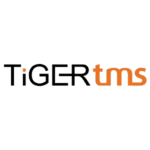 Everyone is talking about guest loyalty and how it is key for any accommodation business. But how important it really is? And, is it something only certain areas of a hotel should care about?
Everyone is talking about guest loyalty and how it is key for any accommodation business. But how important it really is? And, is it something only certain areas of a hotel should care about?
The truth is that guest loyalty can deeply affect the metrics and performance of an accommodation business, therefore, it is not a subject that only the marketing department should care about, but also especially, CEOs and General Managers.
Since it can have a deep impact on the business, it is important to track guest loyalty in the most accurate possible way to make the right decisions.
There are different KPIs that the top management should pay attention to in a consistent way to be able to track the evolution and establish trends for the hotel.
In this blog post, we’ll explore the essential guest loyalty metrics that CEOs and General Managers should track, along with strategies to analyse and improve loyalty scores.
Why is guest loyalty important for the success of a hotel?
Guest loyalty is essential for the success of a hotel, as it helps to build brand recognition, creates powerful word of mouth, and has a direct impact on the budget, as engaging with existing customers is 5 to 20 times cheaper than gaining new ones.
Guest loyalty is also important for hotels because it helps to create ambassadors. Nowadays, in a world where advertising is everywhere and wherever users look, they see an ad, original opinions and recommendations are key.
And here is where guest loyalty plays a key role since it helps a hotel to have their own earned ambassadors that will recommend and come back to the hotel because of the experience they had, attracting others in their way.
What are the guest loyalty metrics you should pay attention to?
You could measure guest loyalty from different angles, but certain metrics will be key to getting the right overview of your business. In this sense, the most important metrics for tracking guest loyalty include customer retention rate, average daily rate, net promoter score (NPS), average length of stay (ALOS), customer feedback management and reputation management.
Customer retention rate
Customer retention rate is a measure of the number of guests that return to the hotel within a certain period, such as one year. By measuring this, you will have an indication of how many guests are returning to your establishment, indicating their satisfaction with their experience and loyalty towards your business.
This metric can be seen as the key to measuring guest loyalty since a higher percentage indicates that guests are more likely to be loyal customers, while a lower percentage could suggest that they may not be as satisfied with your services and offerings.
Among the returning guests, review what kind of services they asked for, and what type of room or package was preferred. This will help you determine which services and offerings are resonating with guests the most.
The average length of stay (ALOS)
The average length of stay (ALOS) is an important metric to monitor when it comes to guest loyalty. This metric tells you how long on average guests are staying at your establishment, which can provide valuable insight into their satisfaction and loyalty levels.
Longer stays suggest that guests are more likely to be satisfied customers, while shorter stays indicate a lack of loyalty. ALOS can also help you identify trends or changes in guest behaviour over time, hence tracking the evolution of each season can give you powerful insights.
Net promoter score (NPS)
Net promoter score (NPS) is a metric that measures customer satisfaction with their overall experience. It provides insight into the loyalty of your guests and indicates how likely they are to recommend your hotel to friends or family.
If a customer is not satisfied, they won’t want to go back to your hotel for a second time. If this is happening a lot in your hotel, the NPS score will be lower. Hence, a higher NPS score means that customers are more likely to be satisfied and loyal, while a lower score means the opposite.
Average daily rate (ADR)
The average daily rate (ADR) is an indicator of how much revenue a hotel makes for each room night booked. A higher ADR generally means that the hotel has a higher level of loyalty among its customers, as they are more likely to be willing to pay higher prices for better services and amenities.
Monitoring changes in ADR over time can provide valuable insight into the success of different marketing efforts or service offerings that can help you increase customer loyalty.
Customer Feedback Management
Another important factor to consider is customer feedback management, including both online reviews and direct feedback from individual customers. This includes reading reviews on major review sites like TripAdvisor, Google Reviews, Yelp, etc., as well as collecting direct feedback from customers through surveys or in-person interactions.
In this point, you should note that responding promptly to negative reviews, despite being the less favourite activity for hotel staff, is highly important to maintain a strong reputation and show potential customers that you value their opinions.
Reputation management
Additionally, consider reputation management, as this is a crucial part of maintaining a positive online presence and boosting your property’s overall image.
Reputation management is monitoring your brand presence over time, both online and offline. Here, customer sentiment and reviews play an essential part. It is highly linked with customer feedback management, but it applies on a larger scale.
While customer feedback management involves monitoring and responding to direct customer reviews, reputation management involves tracking sentiment trends over time to maintain a positive online presence and boost a property’s overall image.
Customer feedback management focuses on individual customers’ experiences, while reputation management pays attention to the hotel or property’s larger presence in the public sphere.
For this, there are various tools available that can help hotels monitor customer reviews, share them on social media, respond directly to guests’ comments, measure sentiment trends over time, and generate insights into areas of improvement.
What to do with the guest loyalty metrics?
Analysing these metrics can provide valuable information to help you understand your guests better and improve their overall experience at your accommodation brand. You will also be able to identify trends and areas of improvement to help make your establishment a favourite among guests.
With all this data, you can develop strategies to enhance guest loyalty and attract more customers. There are many strategies and tactics you can apply to improve your guest loyalty, and everything will depend on your brand. Style, target, and objective will influence the actions you choose to deploy to enhance your guest loyalty.
However, no matter which strategies you choose to apply, the bottom line is that guest loyalty is a crucial aspect of your hotel business and it must be taken seriously.
Brands that don’t care about their brand image or their returning guests will sooner or later see the consequences on their revenue. Therefore, paying attention to guest loyalty metrics is something that cannot be overlooked, especially in today’s highly competitive hospitality industry.
Follow us on LinkedIn to stay up to date with the new hospitality trends, and subscribe to our newsletter to get more tips and hacks for hotel marketing and operations.





















